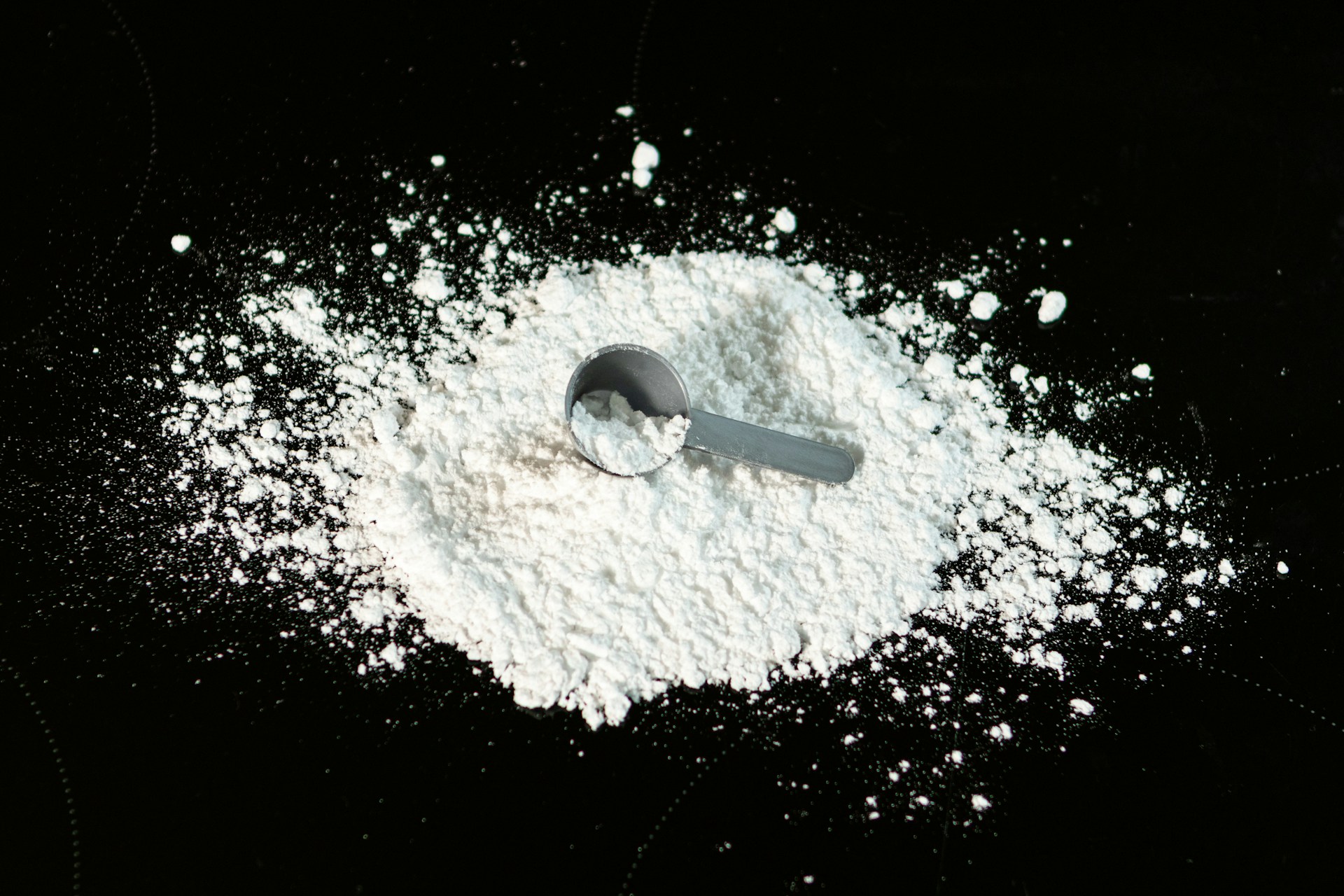The Ultimate Guide to Creatine: What It Is and How It Works

By Gav on 2025-03-12 16:03:42
Type: Supplements
What Is Creatine?
Creatine is a naturally occurring compound in your body, primarily found in your muscles. It plays a key role in energy production by helping generate adenosine triphosphate (ATP), which fuels muscle contractions.
Your body produces small amounts of creatine in the liver, pancreas, and kidneys, but you can also get it from food sources like meat and seafood. Many athletes supplement with creatine to enhance performance, strength, and muscle growth.
How Do Creatine Supplements Work?
When you take a creatine supplement, most of it is stored in your muscles and converted into phosphocreatine. This helps regenerate ATP quickly, providing more energy for high-intensity activities like weightlifting and sprinting.
Creatine also increases water retention in muscle cells, which can lead to muscle fullness and growth.
Is Creatine a Steroid?
No, creatine is not a steroid. It is a legal and widely accepted supplement approved by organizations like the International Olympic Committee (IOC) and NCAA.
While safe for most people, always consult a healthcare professional before taking any supplement.
Benefits of Creatine Supplementation
| Benefit | Description |
|---|---|
| Increased Strength | Improves power output for weightlifting and other strength-based activities. |
| Enhanced Muscle Growth | Supports muscle volume by increasing water retention in cells. |
| Faster Recovery | Reduces muscle fatigue and speeds up post-workout recovery. |
| Improved Performance | Boosts endurance in short, high-intensity exercises. |
| Cognitive Benefits | May support brain function and reduce mental fatigue. |
Foods High in Creatine
| Food | Creatine Content |
|---|---|
| Pork | Rich in creatine, supporting muscle energy levels. |
| Beef | One of the best dietary sources of creatine. |
| Fish | High in creatine and omega-3 fatty acids. |
| Shellfish | Good source of creatine and lean protein. |
| Animal Milk | Contains small amounts of naturally occurring creatine. |
Creatine Side Effects & Safety
| Potential Side Effect | Description |
|---|---|
| Weight Gain | Due to increased water retention in muscle cells. |
| Stomach Discomfort | Possible bloating or digestive issues if taken in excess. |
| Nausea | Some individuals may experience mild nausea. |
| Diarrhea | Occasionally reported with excessive doses. |
| Muscle Cramping | Rare but can occur if hydration levels are low. |
| Kidney Strain | Generally safe, but caution is advised for those with pre-existing kidney conditions. |
Tip: Stay hydrated and follow recommended dosages to minimize side effects.
What Happens When You Stop Taking Creatine?
| Effect | Description |
|---|---|
| Temporary Fatigue | May experience slight decrease in energy. |
| Mild Muscle Loss | Water retention decreases, making muscles appear slightly smaller. |
| Performance Decline | Reduced ATP production can slightly lower high-intensity performance. |
Key Takeaways
| Key Point | Summary |
|---|---|
| Natural Compound | Creatine is found in the body and in protein-rich foods. |
| Performance Booster | Helps increase strength, endurance, and recovery. |
| Not a Steroid | Safe and widely accepted in competitive sports. |
| Safe in Moderation | Follow recommended doses and stay hydrated. |
| Consult a Professional | Always check with a healthcare expert before supplementing. |
Should You Take Creatine?
Creatine remains one of the most researched and trusted supplements in the fitness world. If you're looking to enhance your workouts, boost muscle growth, and improve performance, creatine could be a valuable addition to your routine.






